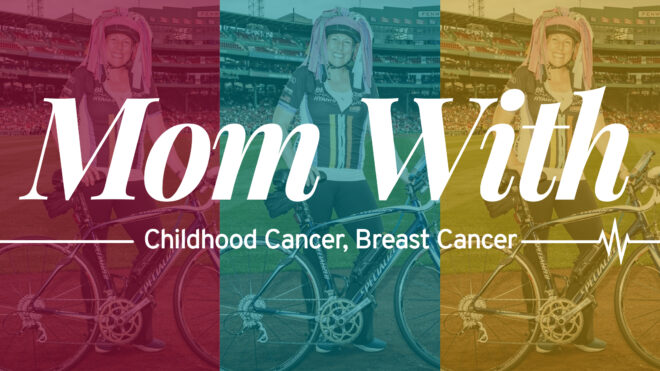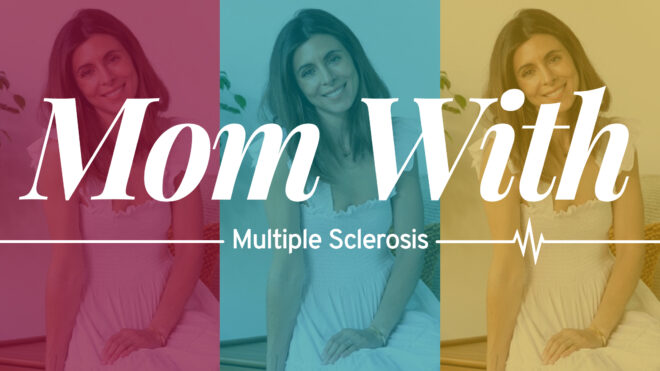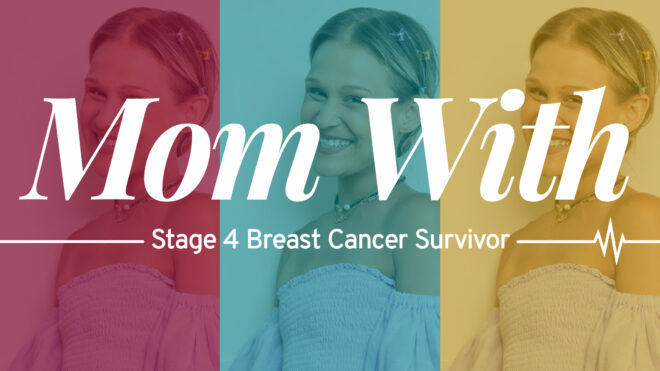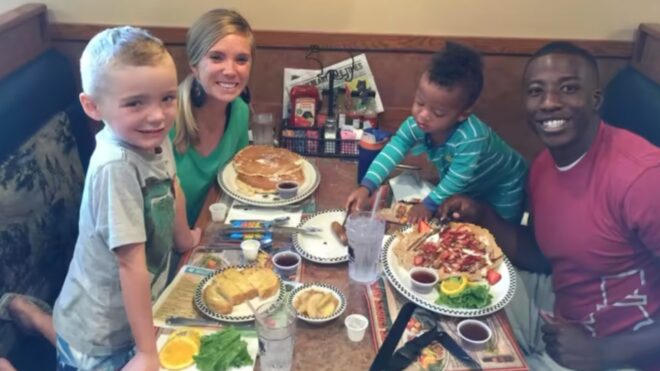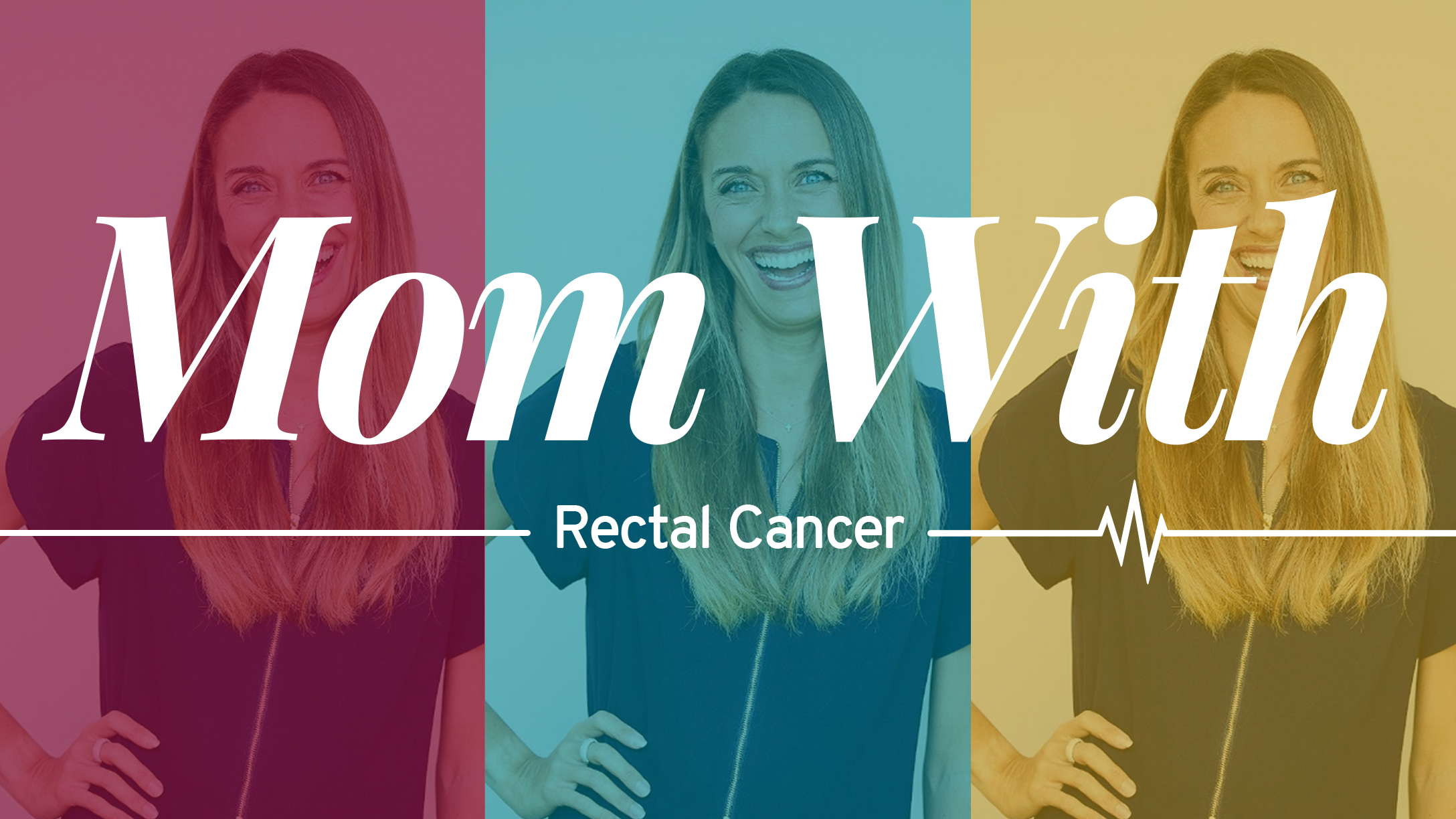
Cancer isn’t something moms want to think about. We’re busy taking care of the kids, packing lunches, meeting deadlines, and driving to activities. We know we need to schedule those checkups, tests, and screenings, but life is busy and we keep pushing things to the back burner.
So we think blood in our poop is probably from that hemorrhoid we got from carrying our babies. That’s what Marisa Peters was told before being diagnosed with stage 3 rectal cancer in 2021, when she was 39 years old, after five years of her symptoms being mistaken for typical postpartum issues.
Marisa is a mom of three boys, a cancer survivor, a women’s health thought leader and the founder of BE SEEN. She is on a mission to spread awareness about early-onset colorectal cancer and save lives through advocacy. She is aiming to get 100,000 people to take the BE SEEN pledge to schedule their colonoscopies and screenings.
We spoke with Marisa about how she launched BE SEEN and her mission to save lives and prevent the rise of colorectal cancer impacting people in their 20s, 30s, and 40s.
More from CafeMom: How Mom of 3 Sarah Krajewski Stays Brave as a Survivor of Childhood Cancer & Breast Cancer
'My body was (literally) trying to murder me.'
We asked Marisa to share the story of how she was diagnosed with rectal cancer.
“There was blood on the toilet paper after I wiped my butt and symptoms grew pervasively more concerning,” says Marisa. “I voiced my symptoms to every medical professional in my life for the previous five years.”
Although Marisa spoke up, her concerns were dismissed as something that came with giving birth, striving for perfection, and being over-reactive. She was told her hemorrhoids were “cute” and that there was nothing to worry about. She remained unseen. As the blood became brighter and more prevalent, Marisa knew she needed to be seen. After all that, Marisa was diagnosed with stage 3b rectal cancer.
“My body was (literally) trying to murder me. It rocked me to the core and the real kicker — it never had to happen,” Marisa tells CafeMom.
Marisa explains that colorectal cancers are more treatable with early detection and that is why she founded BE SEEN. She is on a mission to eradicate colorectal cancer and save the lives that are being taken far too early. Marisa shares that colorectal cancer is on track to be the top killer of young moms by 2030, and is currently the second cause of cancer-related deaths in women today.
“Women, particularly mothers and underrepresented communities, already struggle to be seen in our culture and BE SEEN was founded to combat that in this area. No one should have to struggle as I did. Cancer is hard enough. If I can help people advocate for themselves and understand that colorectal cancer is preventable with early detection and screening, I can carve a better path for a future version of me,” Marisa shares with CafeMom.
'We learned a whole lot as a family about who we are, what we stand for and ways to make life well-lived.'
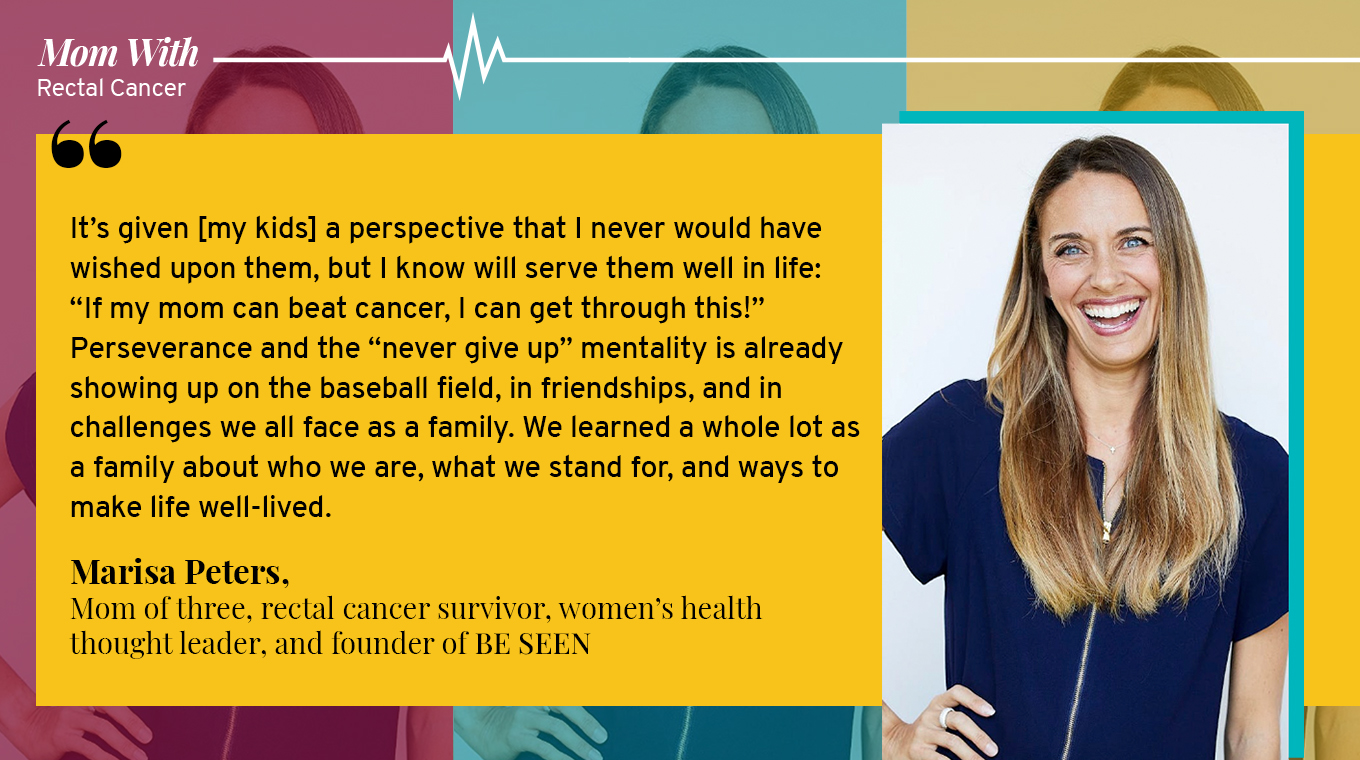
We asked Marisa how being a cancer survivor impacted her daily life and work and any adjustments she’s made to care for her family.
She shares that life was always a balancing act, working a full-time job and raising her three young boys. Cancer certainly added a dynamic that wasn’t on her bingo card. She says that one big positive on the other side of the battle is that her kids have seen their family come through the fire and get through real adversity.
“It’s given [my kids] a perspective that I never would have wished upon them but I know will serve them well in life, ‘If my mom can beat cancer I can get through this!’ Perseverance and the ‘never give up’ mentality is already showing up on the baseball field, in friendships, and in challenges we all face as a family. We learned a whole lot as a family about who we are, what we stand for and ways to make life well-lived,” Marisa tells CafeMom.
'There was great power in building the supportive community of friends and care team that fueled my mind, body, and spirit.'
Marisa explained that as quickly as she moved from carpools to chemotherapy, the community around her jumped into action. She never felt alone because her husband, Josh, and she were on a mission to maximize her longevity.
“Cancer can strip away a lot of life decisions from you overnight — for example, my treatment would take away my ability to have more children and trigger early menopause. This was a tough pill to swallow and, alone, would have been almost impossible for me to process. There was great power in building the supportive community of friends and care team that fueled my mind, body and spirit,” says Marisa.
Josh accompanied her to every appointment, infusion, and operation. She remembers the four months following her rectal reconstruction surgery, where Josh did every single ileostomy bag change with her as they converted their bedroom to a medical station where they would race themselves to get the change done.
Marisa shared that she and Josh would strive for their fastest time (which was 13 minutes!) and say “in sickness and in health” to each other with a whole new perspective of what that really means.
'I realized I needed to speak up about what I needed, rather than expecting others to read my mind.'
Marisa shares that being direct was extremely important throughout her treatment and beyond.
“I realized I needed to speak up about what I needed, rather than expecting others to read my mind. By doing this, I invited others around me to be part of the solutions rather than isolating myself in frustration,” says Marisa.
She first started by bringing her children into the circle. When she came home from her first colonoscopy where the tumor was discovered, her boys came running to the car as she pulled into the driveway.
“[When the tumor was discovered], I was speechless and unable to hold back the tears. We’d prioritized communication with our children before and we never wanted to hold back the truth but with the magnitude of my diagnosis, we would need to tailor it a bit to where each of them was on their journey,” Marisa tells CafeMom.
She says each of her boys experienced her cancer differently.
Marisa describes each of her boys’ experiences during her cancer journey.
“Beau, then 16 months old, had to stop nursing overnight without time to transition and had to find new ways to snuggle now that I couldn’t pick him up. Today, he still associates my health procedures with being able to be picked up,” she shares.
“Desmond, deeply curious at 5 years old, immediately immersed himself in learning about ‘Big Gulp,’ my surgically implanted port used for chemotherapy infusions; the ‘Laser Blasters’ emitting targeted radiation over five weeks; and my ‘poop bag’ changes for ileostomy, which we explained at his kindergarten show-and-tell together,” she describes.
“Ford, then 7 years old, an empath with high emotional intelligence, could tell when I was not feeling OK before I could realize it myself. The power of prayer in his classroom and school helped him feel supported. At home, he would sit near and find moments to hug me out of the blue, the most meaningful medicine for me as a mother.”
She named her cancer 'Earl.'
When explaining her cancer to her kids, Marisa said that doctors found something growing in her body that should not be there. At that moment they named her cancer “Earl,” inspired by The Chicks’ song “Goodbye, Earl.” It needed to be destroyed.
“We played the [‘Goodbye Earl’] song loud and proud; my boys knew we were in for a fight, but together we could win. Now, whenever I mention Mom needing to go to a scan or a dietician or a workout class for my own health needs, they know it’s to make sure ‘Earl’ never comes back,” Marisa tells CafeMom.
Marisa's has advice for moms who are facing health challenges.
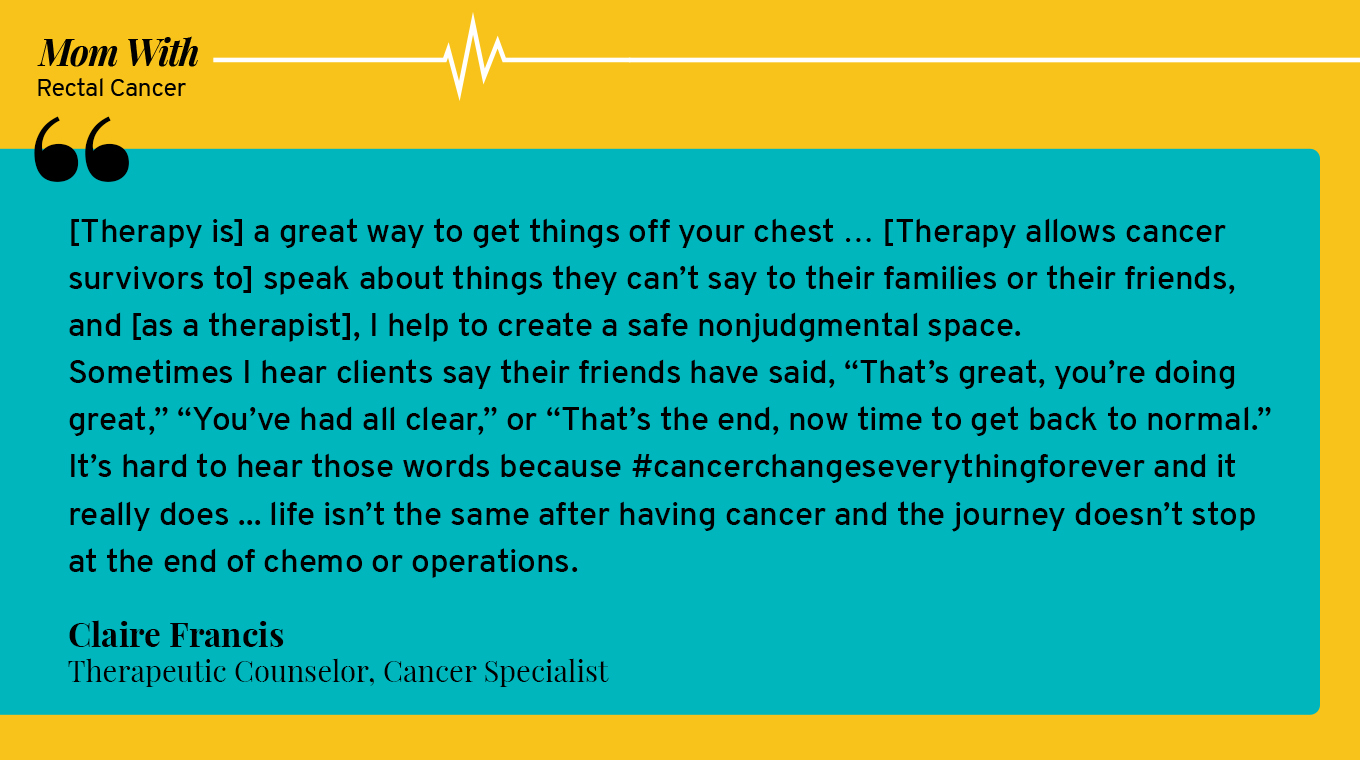
Marisa says that there are so many different lessons she learned and continues to learn as a result of the adversity she’s faced in life, often wishing she could learn without things getting so tough. When asked about her advice to other moms who are facing health challenges, she spoke about the power of our mindset, our agility and our ability to “find a way” through the darkest storms.
Having Mindset on Her Side and Working With Her Therapist
Marisa’s sister, Natalie Greisl, shared with her a mantra early in her treatment that she’s carried ever since and still makes Marisa feel strong and powerful today: “They whispered to her ‘You can not withstand the storm.’ She whispered back, ‘I AM THE STORM.’”
Marisa said that the power of a positive mindset when facing illness, according to the American Cancer Society, was a guiding force for her and her family.
“Being diagnosed with cancer put me directly in a position to be present because the past and the future were in question for me,” Marisa shares with CafeMom.
Marisa worked closely with her therapist, Ronnie Vehemente and they took deliberate steps to process all stages of her grief, including making meaning of what she went through so her mind and body would work as part of her care team, not against her. For Marisa, founding BE SEEN is a critical part of making meaning that makes a difference in the lives of others.
Claire Francis, Therapeutic Counselor, Cancer Specialist at Counselling With Cancer explained how therapy is helpful for cancer survivors.
“[Therapy is] a great way to get things off your chest … [Therapy allows cancer survivors to] speak about things they can’t say to their families or their friends, and [as a therapist], I help to create a safe nonjudgmental space. Sometimes I hear clients say their friends have said ‘That’s great, you’re doing great,’ ‘You’ve had all clear,’ or ‘That’s the end, now time to get back to normal.’ It’s hard to hear those words because #cancerchangeseverythingforever and it really does … life isn’t the same after having cancer and the journey doesn’t stop at the end of chemo or operations,” she explains.
Be Nimble and Accept Help
Marisa explained that children are incredibly nimble and can process the curveballs life throws better more than those of us with more life experience (aka older people). She and Josh found breaking the news about her cancer to their kids was both a priority and a struggle to find the right words. However, Marisa has witnessed first-hand accounts of people who hide their diagnoses and the impact on their loved ones.
“[What happens when people hide their diagnosis is that the] children, regardless of the kids being adults, questioning their parents’ intention and the secrecy is followed by the rationale the family member is trying to protect, save them from the fear, pain and concern. I’ve observed greater insecurity for their loved ones, trust eroded and even worse, isolation for the person going through treatment,” Marisa tells CafeMom.
Marisa says receiving help is critical to her recovery and her family’s stability. Although accepting help was difficult for them, they knew they would not be able to overcome cancer alone.
“Josh and I gave specific suggestions to people who wanted to help us. Taking basic daily decisions someone else could make for us, like what we would eat for dinner, gave us space to make life decisions that only we could make, like decisions about fertility,” shares Marisa.
Find a Way
Marisa advises that the physicians who are part of the medical systems are overloaded with processes, shifting priorities, and people pulling in opposite directions.
“When our health system is unhealthy, it’s even more important to listen to our gut instinct with curiosity. You will always care most about your own well-being, treatment, and health span,” Marisa tells CafeMom.
Marisa urges women to ditch self-judgment and avoid being silenced by giving voice to concerns that are pervasive.
“We have to find solutions to root cause issues — for example, I had to change my oncologist after my first round of chemotherapy because our approach to my treatment did not align. Then when my white blood cell counts were low, delaying my chemotherapy, we found out about an injection that would boost my white blood cell generation to allow us to get back on track and mitigate the side effects proactively,” says Marisa.
'My dream is that we turn this challenge into something far better than we could have ever expected.'
Marisa shares that her work with BE SEEN incorporates her family in the mission and her close, lifelong friendships. She says it’s less about work, family, and health in separate compartments balanced on a scale. Instead, she’s now found that integrating all of her experiences and the people she cares most about feels more purposeful and connected than she’s ever felt before.
“We’re now spending time together on purpose, with a mission and a zeal that, I think, is helping all of us heal together. My cancer affected all of us — facing mortality sends waves through everyone, not just the person with the life-threatening illness. My dream is that we turn this challenge into something far better than we could have ever expected. Never making waste of a good crisis. My cancer brought all of us closer, stronger and connected to each other,” Marisa shares with CafeMom.
As for herself, Marisa’s hope is to better instill daily rituals that allow her to start her day centered rather than “shot out of a cannon” the second she opens her eyes each morning.
“I recently left my position as Chief People Officer at a growing tech company to take more control of the legacy I want to leave with my life. Since having cancer, I’ve used a single word to focus my intentions for the year ahead — this year my word is ‘realize’ or just do it, Nike style. And as the momentum is growing, this storm is just getting started,” Marisa tells CafeMom.
*Disclaimer: The advice on CafeMom.com is not a substitute for consultation with a medical professional or treatment for a specific condition. You should not use this information to diagnose or treat a health problem without consulting a qualified professional. Please contact your health-care provider with questions and concerns.

